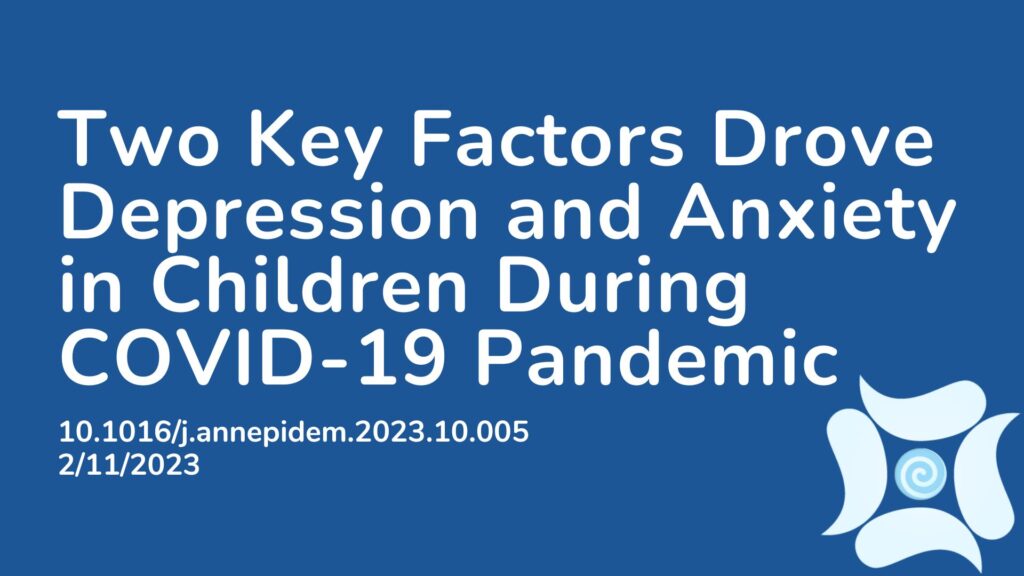Summary:
The global crisis triggered by the COVID-19 pandemic has been recognized as a stressful situation that could worsen or contribute to adverse mental health effects in children. Factors such as illness-induced isolation, economic hardships within families, traumatic experiences like the loss of loved ones due to COVID-19, and sudden disruptions to education and daily life have been identified as potential contributors to the decline in children’s mental well-being. Preliminary evidence concerning the mental health of children during the pandemic indicates an increase in symptoms related to depression, anxiety, and post-traumatic stress, along with a rise in mental health crises requiring emergency intervention and care. This study investigated symptoms of poor mental health among children aged 5-12 during the pandemic and shed light on factors that may contribute. The results showed that children exhibiting poor mental health symptoms such as anxiety and depression were more prevalent when stressors such as economic stress and parental emotional strain was present. Conversely, children with protective factors, like consistent daily routines, were less likely to display such symptoms.
Abstract:
Purpose: Examine children’s mental health symptoms, including changes during the COVID-19 pandemic. Methods: The COVID Experiences Surveys, designed to be representative of the U.S. household population, were administered online to parents of children aged 5–12 years (wave 1 (W1), October–November 2020, n = 1561; wave 2 (W2), March–May 2021, n = 1287). We modeled changes in children’s symptoms of anxiety, depression, and psychological stress and examined associations between demographic characteristics, COVID-19 related experiences, and protective factors with symptoms across both waves using generalized estimating equations. Results: Based on parent-report, children’s symptoms of anxiety and depression decreased from W1 to W2 (Δ t-score anxiety = −1.8 [95% confidence intervals (CI): −2.5, −1.0]; Δ t-score depression = −1.0 [CI: −1.7, −0.3]). Psychological stress remained consistent. Across waves, older children and children with an emotional, mental, developmental, behavioral, physical, or medical condition were more likely to have specific poor mental health symptoms. Poor mental health symptoms were more likely among children with several contextual stressors (e.g., economic stress, parental emotional strain) and less likely among children with protective factors (e.g., daily routines, neighborhood cohesion). Conclusions: Establishing programs that support mental health, improving access to mental health services, and fostering collaborations to advance children’s mental health is important.
Article Publication Date: 2/11/2023
DOI: 10.1016/j.annepidem.2023.10.005



